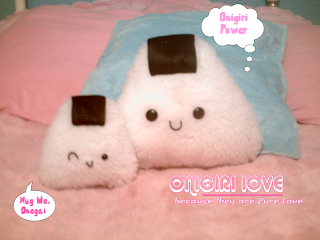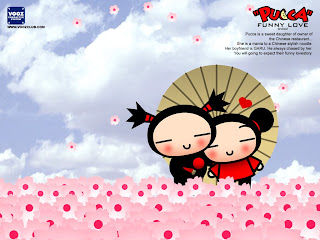2010年8月31日 星期二
2010年8月30日 星期一
我爱你

以为回家后会好过一些
2010年8月28日 星期六
台中慈院:創新術式改善少見「耳骨硬化症」,醫師赴瑞典分享獨創做法
58歲女性罹患東方人少見的「耳骨硬化症」,短短不到2年,聽力嚴重損傷,左耳連戴助聽器都聽不到,原本活躍的個性愈來愈沒有自信。台中慈濟醫院耳鼻喉科主任吳弘斌以「將中耳聽小骨重建手術合併中耳植入助聽器手術」術式,成功讓「耳骨硬化症」病患重拾聽力,並應邀前往瑞典,與同業分享他的獨創做法。
「耳骨硬化症」指的是聽小骨硬化,發生率千分之五,屬於後天原因不明疾病,也無法治癒。罹病的女患者個性活潑、樂於分享,20多年來積極參加公益社團活動,還是小組領導人,聽力出現損失,接電話、看電視都得把聲音放很大,難以參與家人、朋友交談,讓她失去自信,當左耳聽力喪失,連戴助聽器都聽不到時,圍繞著她的世界似乎也跟著變小了,看著媽媽鬱鬱寡歡,家人也好難過,決定向台中慈濟醫院求診。
經由聽力測驗,這位女患者能聽到的最小聲音音量需達87分貝,屬於極重度聽力損失。台中慈濟醫院耳鼻喉科主任吳弘斌指出,聽覺的形成是外耳收集聲音,傳到耳膜,經聽小骨放大,再傳到卵圓窗進入內耳,患者的右耳雖然還可以靠助聽器聽到聲音,可是勢必會愈來愈惡化,如果不做積極治療,等兩邊都完全聽不到了,就只能裝人工電子耳,不但自費費用多出好幾倍,聲音品質也不如正常聲音。
「左耳中耳植入助聽器後,至少可以用十年,一旦右耳也聽不到時,至少還有左耳支撐。」吳弘斌醫師表示,值得高興的是,患者在手術後回診,聽力進步到64分貝就能聽到,助聽器開頻後,聽力更達35分貝,大幅接近正常人的25分貝。左耳重新再聽見聲音,患者忍不住笑開懷,因為她的世界也似乎因此跟著拓展開來。
吳弘斌醫師說,這項手術的方法是直接刺激聽小骨,讓聲音傳遞不需從外耳、耳膜,更直接、品質更好。而「中耳植入助聽器手術」在全球已超過千例,但因為同時進行「重建聽小骨」與「植入助聽器」兩種手術,操作空間只有0.1到0.2公分,一旁還有顏面神經,一不小心可能聽力沒有救回來,反而傷及神經,導致臉歪嘴斜。正因為手術的複雜度與技術的要求都很高,台灣能做的醫師不多,再加上健保不給付,選用的人還是不多。
吳弘斌醫師進一步說明,中耳構造精緻,用力稍過,輕則聽小骨位移、重則傷及內耳,造成全聾,這就是為何人工聽小骨手術是各式中耳手術裡最細膩的一種。
吳弘斌醫師主刀的「中耳聽小骨重建手術合併中耳植入助聽器手術」,有別於一般經圓窗繞道的路徑,而依照人體生理構造,直接從卵圓窗進入,本例更直接以植入助聽器取代聽小骨,相同的品質,手術花費時間更短,也因此應邀赴瑞典分享創新術式的經驗。
新聞提供:台中慈濟醫院公共傳播室 曾秀英
我的心声,有谁明了?
*关于你好的坏的 都已经听说 愿意深陷的是我
没有确定的以后 没有谁祝福我 反而想要勇敢接受
爱到那里都会有人犯错 希望错的不是我
其实心中没有退路可守 跟着你错跟着你走
#我们的故事爱就爱到值得 错也错的值得
爱到翻天覆地 也会有结果
不等你说更美的承诺 我可以对自己承诺
△我们的故事爱就爱到值得 错也错的值得
是执着是洒脱 留给别人去说
用尽所有力气不是为我 那是为你才这么做
Repeat *,#,△,#,△
2010年8月27日 星期五
失去

这一次回家,回想这一年来失去的,多的数也数不清
Oil for Your Lamp
An Excerpt from Oil for Your Lamp
by Lisa Hammond & BJ Gallagher
Virtually every woman we know has the same problem - she knows what's good for her, but she often doesn't do it. She knows she should eat less and exercise more, but still she doesn't make healthy choices. She knows she needs to spend her time and money more effectively, but good time and money management elude her. She finds herself always putting others first, while neglecting her own needs and wants. She doesn't get enough rest or sleep and her endless to-do list hangs overhead like the sword of Damocles. As our friend Brenda Knight laments frequently, "Why am I always riding in the back of my own bus?"
We don't do the things we know are good for us because we are so busy taking care of others that we neglect ourselves. The problem isn't lack of information - we have plenty of information about theimportance of sleep, healthy foods, and exercise. The problem is how we prioritize our lives.
Psychologists tell us that some people are inner-directed and some are other-directed. That is, some people focus on their own internal guidance system for making choices about how to spend their time and energy. Their own self-interest ranks very high on their list of priorities. "What's best for me?" is a key guiding principle in determining where they focus their attention and how they make day-to-day decisions.
And some people are other-directed, which means that their primary focus is external, not internal. They are primarily concerned with relationships, especially people they care about. "How can I help others?" is a key question in how they spend their time and energy. Building and nurturing relationships with loved ones, family, friends, neighbors, and coworkers is the guiding principle in their lives.
Research indicates that, in general, men tend to be more inner-directed, while women tend to be more other-directed. There are exceptions, of course, but as a group, men are focused on themselves while women are focused on other people. Men like to build things while women like to build relationships.
This difference in psychological orientation goes a long way toward helping us understand why we women often do such a poor job of taking care of ourselves. We run around filling others' lamps with oil, but forget to fill our own lamps first. Then we wonder why we're often exhausted, frazzled, stressed-out, anxious and/or depressed!
Awareness is the first step toward solving a problem. So the first section of this book is devoted to helping us acknowledge the problem and understand the reasons for it.
2010年8月24日 星期二
2010年8月23日 星期一
谁叫我睡太熟 而你 忘了叫我醒来。。
2010年8月22日 星期日
"If the first thing you do when you wake up in the morning is eat a live frog, then nothing worse can happen for the rest of the day"
An excerpt from
Eat That Frog!
by Brian Tracy
The 80/20 Rule is one of the most helpful of all concepts of time and life management. It is also called the "Pareto Principle" after its founder, the Italian economist Vilfredo Pareto, who first wrote about it in 1895. Pareto noticed that people in his society seemed to divide naturally into what he called the "vital few", the top 20 percent in terms of money and influence, and the "trivial many", the bottom 80 percent.
He later discovered that virtually all economic activity was subject to this principle as well. For example, this principle says that 20 percent of your activities will account for 80 percent of your results, 20 percent of your customers will account for 80 percent of your sales, 20 percent of your products or services will account for 80 percent of your profits, 20 percent of your tasks will account for 80 percent of the value of what you do, and so on. This means that if you have a list of ten items to do, two of those items will turn out to be worth five or ten times or more than the other eight items put together.
Number of Tasks versus Importance of Tasks
Here is an interesting discovery. Each of the ten tasks may take the same amount of time to accomplish. But one or two of those tasks will contribute five or ten times the value of any of the others.
Often, one item on a list of ten tasks that you have to do can be worth more than all the other nine items put together. This task is invariably the frog that you should eat first.
Focus on Activities, Not Accomplishments
The most valuable tasks you can do each day are often the hardest and most complex. But the payoff and rewards for completing these tasks efficiently can be tremendous. For this reason, you must adamantly refuse to work on tasks in the bottom 80 percent while you still have tasks in the top 20 percent left to be done.
Before you begin work, always ask yourself, "Is this task in the top 20 percent of my activities or in the bottom 80 percent?"
The hardest part of any important task is getting started on it in the first place. Once you actually begin work on a valuable task, you will be naturally motivated to continue. A part of your mind loves to be busy working on significant tasks that can really make a difference. Your job is to feed this part of your mind continually.
Motivate Yourself
Just thinking about starting and finishing an important task motivates you and helps you to overcome procrastination. Time management is really life management, personal management. It is really taking control of the sequence of events. Time management is having control over what you do next. And you are always free to choose the task that you will do next. Your ability to choose between the important and the unimportant is the key determinant of your success in life and work.
Effective, productive people discipline themselves to start on the most important task that is before them. They force themselves to eat that frog, whatever it is. As a result, they accomplish vastly more than the average person and are much happier as a result. This should be your way of working as well.
2010年8月21日 星期六
我其实是这么的一个人
我其实是这么的一个人
在学校, 所有人都是我的朋友,任何人需要帮忙,我都会帮,是个烂好人。
没有固定的一群好友,所以人人都可以参,但也因为这样,有时少了归宿感,当她们用属于他们自己的语言,我只能傻笑。
到了大学,参了一群志同道合的,一起奋斗。一起学舞,谈笑,叙述从前,现在,未来,但大家都清楚,大家都是大家的过客,却也很珍惜。
到了印度,就自己一个,参了新的朋友,一起生活,因为跟全部人都一样,所以也一样没有固定的一群。
有时会以为自己已变成他们的一群,一分子,但到头来,我还是外人,又问过自己,是不是一个很令人讨厌的人,我懂自己有很多缺点,但这也只有宝贝可以包容,有时也会很羡慕大家,有一群形影不离的好友,但就告诉自己别太勉强,别太贪心,我有宝贝就够了,一时得到大家的关心帮助,真的很感动,在心里感激,因为不是很会表达,所以不了解的人就会觉得我很坏,无情。
我就是这么一个人,每次以为自己交到了最知心的朋友,他们就会一一离开,而且都是无言的结局。或许,我给人的第一印象不起眼,然后会觉得很好玩,之后会发现我滥好人,很容易看穿,到最后,他们都会选择离开,或许会回来,但之后又会再次离开。我其实不在意,其实是滥好人,还是已经麻木了,我自己也不懂。我懂的是,对别人太好,就是对自己残忍,但因为宝贝,我丢失了所有的保护层,所以就算知道结果,我还是要保持这样的自己。
我就是这么一个人,假期天天呆在家,没别的,就吃和睡,也不会有人过问假期有什么打算,就跟妈妈进进出出,帮忙一点家务,看弟弟妹妹在闹,却没有参一起。不会像妹妹有一大堆约会,疼她的朋友,不会像弟弟有电玩战友或是踢球的好兄弟。
我就是这么一个人,在家对最多的就是电视,书本,音乐,床。。没别的,但一直都不觉得孤单。现在想回,其实真的很孤单,或许我太不起眼,所以容易被人忽略,也或许太抢眼,会被人放一边,免得阻碍别人发光。也或许,我一直都追求不属于自己的东西,而那些关心我的,却一直被我忽略,或许给人感觉太坚强,所以不需要被保护。一直活在自己的世界里的我,从没觉得有什么问题。
如果说从没有人关心我,会很过分,我懂的,我的家人,还有以前几位老朋友和现在几位朋友,在我跌倒后扶我一把,一直支持着我,谢谢你们。
宝贝,或许你也是那其中不属于我的东西,所以我才会跌得那么重,但我没有后悔,也不会后悔。如果真的要我选,我会选择留着,不离开,可能到头来,我还是滥好人。。不管是什么都好,我不会放弃,无论往后发生什么事,我朝向哪里,如果你还相信我,如果你们了解我。。不过或许这也是妄想,我也不了解自己,怎能要求别人。。只能说从来没有一个人让我那么的奋不顾身,以后也很难再有。。有点遗憾,却又很美,结局不能完美,但还是很美。。
其实自己怎么样,都无所谓,一直以来我都是这样的一个人,只希望大家开开心心的,大家希望我开心,我会开心的,就这样。。虽然更希望有那样的人,扮演那样的角色,留在我身边,但既然不能强求,我也会活得很好,一个人在外的我,带着大家所有的祝福,其实比天天见面还珍贵。
所有帮过我的人,我会一直感激在心,所有伤害我的人,我会相信你们有自己的理由,不会防止我继续对你们更好。
宝贝说得对,我不能对过去的事释怀所以活得很辛苦,但我还是选择了这样,而你选择了这样的我。
但宝贝你错了,你说我惆怅的的是把别人的痛放在自己身上,其实自己的没那么痛,是把自己的故事想象成童话里的一样,其实那不会发上再现实生活,把歌曲和音乐的夸张表达放大自己的伤口,我们并非歌词里形容的主角。你错了,我惆怅别人的痛,但因为有你我不会痛,我想象童话,是你给我的,把歌曲和现实相联,是为了收集更多表达爱你的方式。
真心对待人,没想过回报
真心地做好自己的事,然后自己引以为傲
真心地希望每个人都好好的,即便是牺牲自己
真心的爱一个人,等待着奇迹
我就是这样的一个人。
一直寻找着答案,但答案已刻在心里,刻骨铭心
我就是这样的一个人。
2010年8月20日 星期五
潑水節
遵行人倫,順天時
人類自詡為「萬物之靈」,總是憑恃聰明而為所欲為。上人慨嘆:「蠢動含靈皆有佛性,應平等尊重以待,和所有生命和平共處。但是現今人倫道德不彰,人不守本分,不但不能負起保護大地眾生的使命,甚且戕害生靈。」
上人表示,唯有透過教育,引導人遵行人倫道理,奉行禮節、情操;人心調順,才能進一步使天時地理調順。
四月十二至十五日是泰國宋干節(潑水節),也是新年;傳統習俗是子女替父母淨身,表達孝順;後來慢慢演變成潑水活動。四月三日新年前夕,慈濟人對長期照顧戶例行發放時,遵循傳統,恭敬向老人家奉上一杯水,讓他們清洗臉和手;長者們流露出歡喜感動。
「富有敬老與孝順意義的傳統習俗,卻隨著時間演變成潑水嬉鬧,反映出社會人心的變異。」早會時間上人表示,慈濟人以身作則,履行孝道,視天下長者為自家長輩,常至孤苦貧病的長者家中為之洗浴、淨身,這是「感念親恩、眾生恩」;常以佛法洗滌內心塵垢,就是「感念佛恩」。
泰國清邁慈濟學校創校五年來,已成為充盈人文精神的莊嚴教育道場,當地教育部基礎委員會,去年十二月委託慈濟舉辦人文研習營,挑選五十二所佛教學校參加,希望這些學校能實踐志願精神、提升素質。
「剛開始,許多校長抱著不情願的心態,認為泰國也是佛教國家,為什麼要學習台灣的方式?但在營隊圓緣後,校長們感到非常震撼,認為慈濟有心辦教育、慈濟老師富有使命感,讓他們很能接受慈濟教育人文,更願意回學校推動。」
泰國教育界肯定慈濟人文教育,即將展開第二梯次營隊課程。上人欣見慈濟學校師生的人文風範受肯定。「在社會人心脫序的此刻,應提倡復古——回復過去的禮儀道德。導正人生軌道,才能使社會平安、天下和諧。」
2010年8月16日 星期一
又是《牛郎织女》
牛郎织女

2010年8月14日 星期六
失落
失落大概就是这样的感觉吗?



